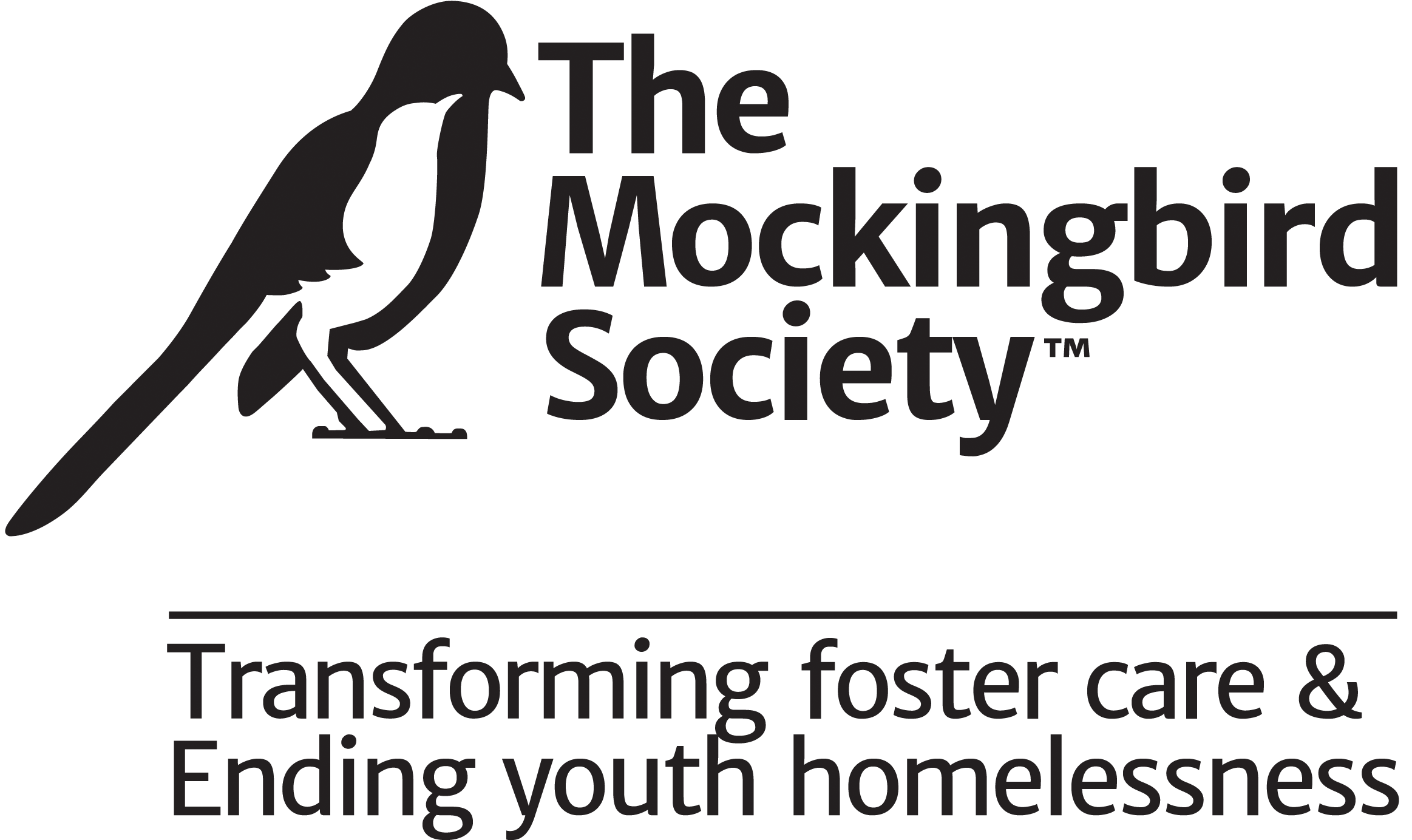The Time Is Now
 The Mockingbird Society (TMS) is entering a new era of advocacy with the formation of the new Department of Children, Youth and Families (DCYF). This new department will focus more clearly on prevention and early intervention by restructuring our state’s approach to how we serve vulnerable children, youth and families.
The Mockingbird Society (TMS) is entering a new era of advocacy with the formation of the new Department of Children, Youth and Families (DCYF). This new department will focus more clearly on prevention and early intervention by restructuring our state’s approach to how we serve vulnerable children, youth and families.
In our 17-year history, TMS has been at the vanguard of child welfare reform, driving policy solutions inspired by young people experiencing foster care or homelessness and transforming how we provide foster care services through the development of the Mockingbird Family Model. Mockingbird has an excellent track record of working with lawmakers to improve aspects of the child welfare system for youth coming into care. We recognize the formation of the new department as an opportunity to go further upstream in our work. With our strong foundation from which to build, it is time to go bold: we don’t want to tinker around the edges anymore, but rather fundamentally change how our state “systems” operate. We understand that while child welfare is at the heart of child safety, the real solutions to our most pressing issues reside in our communities and are often tied to other systems that impact children, youth and families.
The Crisis
This interconnectedness of issues impacting our most vulnerable citizens is nowhere more evident than in the outcomes we see for children and youth in our child welfare system. Alumni of foster care have far poorer educational outcomes than their peers, with a dropout rate more than three times that of the general population. They also fare worse on just about every significant mental health outcome that has been measured (e.g., depression, anxiety, panic disorder, bulimia). More than a decade after the courts ordered Washington state to reduce excessive moves among foster kids, some still find themselves uprooted dozens of times in a matter of months.
These poor outcomes affect people of color in disproportionate numbers. According to Partners for Our Children, as of January 1, 2014, Native American children were 3.4 times overrepresented in Washington’s foster care system. African American children were 2.1 times overrepresented in out-of-home care.
This crisis also affects those working within the system. Caseworkers face overwhelming caseloads, lack of funding, and limited placement options. In 2016, the turnover rate for caseworkers was a sobering 28.5% in King County. The recommended caseload limit is 18 in Washington state; however many caseworkers have caseloads of up to 50. With a shortage of available foster homes, social workers have increasingly resorted to housing kids as young as two in hotels at night, then babysitting them in state child welfare offices during the day.
The Solution
TMS is poised to deepen our engagement and move from a response that proposes reactive solutions to identified problems to one that is innovative. We seek to move toward a proactive model that endeavors to define an ideal child welfare system – one that ensures better outcomes for the children, youth and families that experience it.
Our approach is threefold. First, we will be championing the creation of a new framework for child welfare in Washington state. Second, we will deepen our youth engagement through increased leadership opportunities, including policy implementation and meaningful youth representation. Finally, we will continue to expand and promote the Mockingbird Family Model (MFM) as a better method of supporting foster parents and the children in their care.
Given the negative outcomes and disproportionality impacting communities of color, it is clear that a new approach to child welfare is necessary. An approach that is grounded in prevention and guided by our youth and others with lived experience to educate, inform, and transform it into one that is holistic, trauma-informed and centered on the needs of children and families, especially those families from our most marginalized communities who are overrepresented in the system.
It is critical that those who are most impacted by the child welfare system be intimately involved in the restructuring of how the system operates in our state - children and youth, biological parents, and foster parents should all have a say in how these services are delivered. We have a favorite saying here at Mockingbird, “If you aren’t at the table, then you’re on the menu.” We believe that the creation of the DCYF presents an opportunity for community stakeholders to not only be at the table, but to set it.
We are proposing to facilitate community based, state-wide design sessions that will be led by those with lived experience and their allies. The objective of these community sessions is the development of cross-disciplinary state, county, regional, and local recommendations for a radical restructuring of the child welfare system in Washington state. Our focus will not be on trying to fix a broken system, but on the creation of a new system that works for those it is intended to serve.
The second component of our strategy is to deepen our Mockingbird youth engagement and leadership work. At Mockingbird, we experience first-hand the incredible value young people add to drive policy changes in the child welfare system. To quote Casey Trupin of the Raikes Foundation, “Authentic youth engagement is, thankfully, gaining steam as a way to ensure that solutions are grounded in the reality of the lives they are meant to affect. Additionally, authentic youth engagement is a powerful tool to start addressing equity in systems that are often led by those who have the most privilege. “
The Mockingbird Society has already begun to move into the work of monitoring and supporting the implementation of the bills we help to pass – to ensure they have the intended effect they were meant to have. We will also be seeking out new and innovative leadership opportunities with our youth colleagues, starting with a proposal developed by the Everett Chapter of the Mockingbird Youth Network to strengthen youth representation on the newly proposed DCYF Advisory group.
Finally, we will be working to expand the reach of the Mockingbird Family Model (MFM) in Washington state. Currently, MFM is serving children and youth in Pierce, King, Whatcom and Snohomish counties. We seek to establish MFM constellations across the state with both public and private partners, taking advantage of the increased flexibility of the legislative proviso funding. We are dedicated to continuing our work to grow the research base for MFM as well as looking for opportunities to build on the model to better serve those involved.
At Mockingbird we are committed to working closely with the Department of Children, Youth, and Families, community allies and key lawmakers on both sides of the aisle to create a unified vision for a youth- and family-centered system. The underlying philosophy of our strategy is one that seeks to shake up the status quo, narrow inequities and to help create new social standards in how we provide for the welfare of all our children.
The Mockingbird Society chooses to view our current crisis as an opportunity for innovation that is more closely aligned with the needs of our communities. Momentum is building.
Join us to make change.
